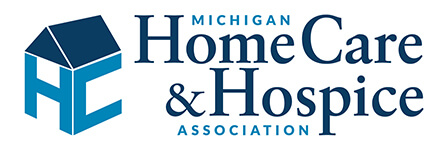Why Your Voice Matters: Submit Comments on the CY 2026 CMS Home Health & DMEPOS Proposed Rule
Why Your Voice Matters: Submit Comments on the CY 2026 CMS Home Health & DMEPOS Proposed Rule
The Centers for Medicare & Medicaid Services (CMS) has released its CY 2026 Home Health Prospective Payment System Proposed Rule, and the changes could have major consequences for home health, hospice, DMEPOS suppliers in Michigan.
Among the most concerning provisions for home health is a cut which includes a permanent 4.059% behavioral adjustment based on assumed, not actual, provider behavior under PDGM; a temporary 5% “clawback” to recover what CMS considers past overpayments; and PDGM case-mix recalibration using 2024 data, which could shift payment away from patients with complex chronic conditions common in Michigan. If finalized, will place significant strain on providers already navigating workforce shortages and rising costs. The result could be reduced access to care, especially in rural and underserved communities.
The proposed rule also includes substantial updates for Durable Medical Equipment, Prosthetics, Orthotics, and Supplies (DMEPOS). CMS proposes adding Class II continuous glucose monitors (CGMs) and insulin pumps to the Competitive Bidding Program (CBP) as monthly rentals that include supplies. While intended to improve efficiency, this could limit patient access if supplier networks shrink. A new Remote Item Delivery CBP (RID CBP) could centralize distribution of certain products, but without careful safeguards it may reduce same-day or in-home delivery options for patients who need them most. Contracting changes would select fewer awardees by setting payment at the 75th percentile of winning bids, risking inadequate supplier coverage in smaller markets. CMS also proposes reducing bidder documentation requirements, which may streamline processes but could let less stable suppliers into the program if oversight is insufficient. Another significant change is moving from accreditation surveys every three years to annual unannounced surveys. This is a shift MHHA views as overly burdensome without evidence of improved quality, especially for rural and small suppliers.
Once the rule is finalized, it will take effect January 1, 2026. The public comment period is the only chance to influence these changes, and both CMS and Congress need to hear directly from you about how they will affect access to care, workforce capacity, and patient outcomes in Michigan.
We need every member to take two essential steps. First, submit your own comments to CMS so the agency understands the real-world impact of the proposed rule. Even short, specific examples from your agency make a difference. Use these resources to guide your comments: Alliance for Care at Home Summary and Guidance, AAHomecare CBP Engagement Toolkit, and VGM Government Relations Overview & Action Steps.
Second, sign on to MHHA’s association letter. In addition to your CMS comment, adding your name to MHHA’s official letter will ensure it goes directly to your U.S. Senators and Representatives so Michigan’s congressional delegation understands the local impact. The letter can be customized for your agency, but every signature strengthens our united voice.
Doing one without the other is not enough. Your CMS comment influences the federal agency writing the rule. Signing MHHA’s letter pushes Congress to take action. Both are essential to protecting home health, hospice, and DMEPOS services in Michigan.
The deadline for CMS comments is on August 29th.
Michigan’s patients are counting on us. Let’s make sure our voices are heard loud and clear in Washington and at CMS.
